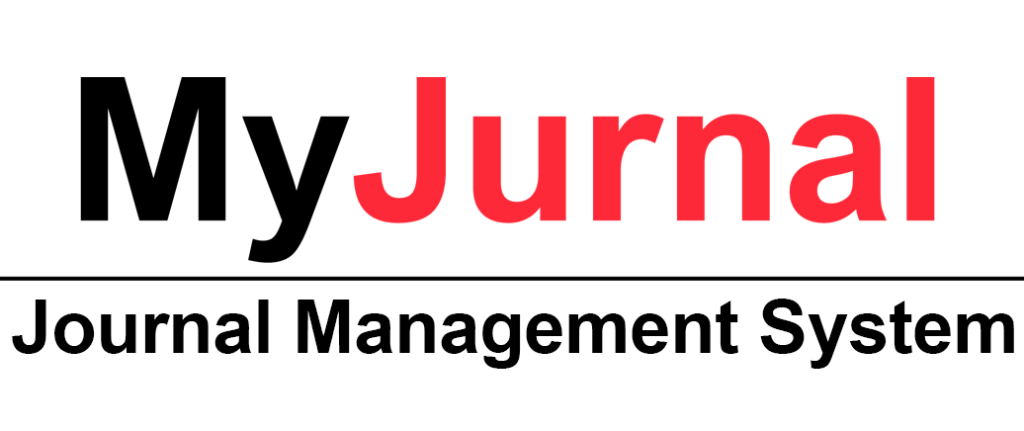The Role of Postgraduate International Students in the Process of Internationalization of Higher Education
DOI:
https://doi.org/10.31436/ijes.v4i1.102Abstract
This study was conducted to assess the role of interactions among international students from different nationalities on the process of internationalization of Malaysian higher education. An embedded design of mixed methods with the predominant role of the quantitative method was applied to conduct this study. The participants of this study were 118 international postgraduate students from a Malaysian public university, and based on their personal agreements, six of them were interviewed as well. Based on the results, the presence and persuasions of students from their countries at universities and the emerging reputation of public universities in the host country were the main reasons that encouraged international students to enroll in the university. The findings of this study also illustrated that almost all participants of this study shared some information about the quality and standards of higher education in the host country with their friends in their own countries, and encouraged some students to join the mentioned university and other universities in the country. Generally, the findings of this study confirmed the positive role of foreign students in assisting the increase in the number of international students, and also on the process of internationalization of higher education. The findings of this study may help universities to reap more benefits from their international students, and also may encourage students to have better academic achievements through their interactions with their peers from different nationalities.Metrics
Metrics Loading ...
References
Abdullah, D., Abd Aziz, M. I., & Mohd Ibrahim, A. L. (2013). A ‘‘research’’ into international student-related research: (Re)Visualising our stand?. Higher Education, 67, 235–253.
Altbach, P.G. (2002). Perspectives on internationalizing higher education. International Higher Education. Retrieved from http://www.bc.edu/bc_org/avp/soe/cihe/newsletter/News27/text004.htm
Banks, C. A., & McGee Banks, C. A. (Eds.). (2001). Multicultural education: Issues and perspectives. Boston: Allyn and Bacon.
Bourdieu, P. (1975). The specificity of the scientific field and the social conditions of the progress of reason.Social Science Information, 14, 19–47.
Buhrmester, D., Furman, W., & Wittenberg, M. (1988). Five domains of interpersonal competence in peer relationships. Journal of Personality and Social Psychology,
55, 991-1008.
Byun, K., & Kim, M. J. (2011). Shifting patterns of the government’s policies for internationalization of Korean higher education. Journal of Studies in International Education, 15(5), 467–486.
Chavous, T. M. (2005). An intergroup contact-theory framework for evaluating racial climate on predominantly white college campuses. American Journal of Community Psychology, 36 (3/4), (239-257).
Coffey, A. J., Kamhawi, R., Fishwick, R., & Henderson, J. (2013). New media environments’ comparative effects upon intercultural sensitivity: A five-dimensional analysis. International Journal of Intercultural Relations; 37, 605– 627
Cohen, T. R., Wildschut, T., & Insko, C. A. (2010). How communication increases interpersonal cooperation in mixed-motive situations. Journal of Experimental Social Psychology, 46, 39–50.
Creswell, J. W. & Plano Clark, V. L. (2007). Designing and conducting mixed methods research. Thousand Oaks, CA: Sage.
Delgado-Marquez, B. L., Escudero-Torres, M. A., & Hurtado-Torres, N. E. (2013). Being highly internationalized strengthens your reputation: an empirical investigation of top higher education institutions. Higher Education, 66, 619–633. doi: 10.1007/s10734-013-9626-8.
Hanassab, S., & Tidwell, R. (2002). International students in higher education: Identification of needs and implications for policy and practice. Journal of Studies in International Education, 6(4), 305-322.
Heyneman, S. (2002). International education. Encyclopedia of Education, 4(2), 1265-1276.
Jon, J. E., Lee, J. J., & Byun, K. (2013). The emergence of a regional hub: comparing international student choices and experiences in South Korea. Higher Education, 67, 691–710.
Kementerian Pengajian Tinggi (KPT) (Ministry of Higher Education, MOHE) (2012). Instru ment Malaysia Research Assessment (MyRA). Retrieved October 12, 2012 from http://jpt.mohe.gov.my/IPT/MyRA.php.
Kim, E.Y. (2010). Internationalization of Korean higher education. (Doctoral dissertation), Available from ProQuest Dissertations & Theses database. ( UMI No. 3425397 )
Knight, J. (2011). Three types of educational hubs: Student, talent and knowledge: Are indicators useful or feasible? The Observatory on Borderless Higher Education. October, 2011.
Lee, E. (2008). Singapore: The unexpected nation. Singapore: Institute of Southeast Asian
Studies.
Mazon, B. K. (2009). The student experience of internationalization in a u.s. and dutch higher education context (Doctoral dissertation). Available from ProQuest Disserta-tions & Theses database. (UMI No. 3391059).
Organisation for Economic Co-operation and Development (OECD) (2011). Education at a Glance 2011:OECD Indicators. Organisation for Economic Co-operation and Develop-ment. Retrieved October 30, 2011 www.oecd.org/edu/eag2011.
Organisation for Economic Co-operation and Development (OECD). (2012). Education at a Glance 2012:OECD Indicators. Organisation for Economic Co-operation and Develop-ment.
Rugman, A. M., & Verbeke, A. (2004). A perspective on regional and global strategies of multinational enterprises. Journal of International Business Studies, 35(1): 3–18.
Sinicrope, C, Norris, J., & Watanabe, J. (2007). Understanding and Assessing Intercultural Competence: A Summary of Theory, Reseach, and Practice (Technical Report for the Foreign Language Program Evaluation Project). Second Language Studies, 26 (1), 1-58.
Slavin, R. E. (2007). Educational Research in an Age of Accountability. Boston: Pearson.
Tan, Y. S., & Goh, S. K. (2014). International students, academic publications and world university rankings: the impact of globalization and responses of a Malaysian public university. Higher Education.
Trilokekar, R. D. (2007). Federalism, Foreign Policy and the Internationalization of Higher Education: A Case Study of the International Academic Relations Division, Department of Foreign Affairs and International Trade, Canada (Doctoral Dissertation). University of Toronto: Canada.
Urban, E. L. (2012). Value of U.S. higher education for international students in the context of higher education internationalization (Doctoral dissertation). Available from ProQuest Dissertations & Theses database. (UMI No. 3536231)
Wang, G. (1992). Universities in transition in Asia. Oxford Review of Education, 18(1), 17–27.
Wiersma, W. & Jurs, S. G. (2005). Research methods in education (8th ed.). Boston, MA: Pearson Education.
Yamao, S. & Sekiguchi, T. (2015). Employee commitment to corporate globalization: The role of English language proficiency and human resource practices. Journal of World Business, 50, 168-179.
Official website of the Ministry of Higher Education Malaysia:
(http://jpt.mohe.gov.my/eng/index.php?)
Altbach, P.G. (2002). Perspectives on internationalizing higher education. International Higher Education. Retrieved from http://www.bc.edu/bc_org/avp/soe/cihe/newsletter/News27/text004.htm
Banks, C. A., & McGee Banks, C. A. (Eds.). (2001). Multicultural education: Issues and perspectives. Boston: Allyn and Bacon.
Bourdieu, P. (1975). The specificity of the scientific field and the social conditions of the progress of reason.Social Science Information, 14, 19–47.
Buhrmester, D., Furman, W., & Wittenberg, M. (1988). Five domains of interpersonal competence in peer relationships. Journal of Personality and Social Psychology,
55, 991-1008.
Byun, K., & Kim, M. J. (2011). Shifting patterns of the government’s policies for internationalization of Korean higher education. Journal of Studies in International Education, 15(5), 467–486.
Chavous, T. M. (2005). An intergroup contact-theory framework for evaluating racial climate on predominantly white college campuses. American Journal of Community Psychology, 36 (3/4), (239-257).
Coffey, A. J., Kamhawi, R., Fishwick, R., & Henderson, J. (2013). New media environments’ comparative effects upon intercultural sensitivity: A five-dimensional analysis. International Journal of Intercultural Relations; 37, 605– 627
Cohen, T. R., Wildschut, T., & Insko, C. A. (2010). How communication increases interpersonal cooperation in mixed-motive situations. Journal of Experimental Social Psychology, 46, 39–50.
Creswell, J. W. & Plano Clark, V. L. (2007). Designing and conducting mixed methods research. Thousand Oaks, CA: Sage.
Delgado-Marquez, B. L., Escudero-Torres, M. A., & Hurtado-Torres, N. E. (2013). Being highly internationalized strengthens your reputation: an empirical investigation of top higher education institutions. Higher Education, 66, 619–633. doi: 10.1007/s10734-013-9626-8.
Hanassab, S., & Tidwell, R. (2002). International students in higher education: Identification of needs and implications for policy and practice. Journal of Studies in International Education, 6(4), 305-322.
Heyneman, S. (2002). International education. Encyclopedia of Education, 4(2), 1265-1276.
Jon, J. E., Lee, J. J., & Byun, K. (2013). The emergence of a regional hub: comparing international student choices and experiences in South Korea. Higher Education, 67, 691–710.
Kementerian Pengajian Tinggi (KPT) (Ministry of Higher Education, MOHE) (2012). Instru ment Malaysia Research Assessment (MyRA). Retrieved October 12, 2012 from http://jpt.mohe.gov.my/IPT/MyRA.php.
Kim, E.Y. (2010). Internationalization of Korean higher education. (Doctoral dissertation), Available from ProQuest Dissertations & Theses database. ( UMI No. 3425397 )
Knight, J. (2011). Three types of educational hubs: Student, talent and knowledge: Are indicators useful or feasible? The Observatory on Borderless Higher Education. October, 2011.
Lee, E. (2008). Singapore: The unexpected nation. Singapore: Institute of Southeast Asian
Studies.
Mazon, B. K. (2009). The student experience of internationalization in a u.s. and dutch higher education context (Doctoral dissertation). Available from ProQuest Disserta-tions & Theses database. (UMI No. 3391059).
Organisation for Economic Co-operation and Development (OECD) (2011). Education at a Glance 2011:OECD Indicators. Organisation for Economic Co-operation and Develop-ment. Retrieved October 30, 2011 www.oecd.org/edu/eag2011.
Organisation for Economic Co-operation and Development (OECD). (2012). Education at a Glance 2012:OECD Indicators. Organisation for Economic Co-operation and Develop-ment.
Rugman, A. M., & Verbeke, A. (2004). A perspective on regional and global strategies of multinational enterprises. Journal of International Business Studies, 35(1): 3–18.
Sinicrope, C, Norris, J., & Watanabe, J. (2007). Understanding and Assessing Intercultural Competence: A Summary of Theory, Reseach, and Practice (Technical Report for the Foreign Language Program Evaluation Project). Second Language Studies, 26 (1), 1-58.
Slavin, R. E. (2007). Educational Research in an Age of Accountability. Boston: Pearson.
Tan, Y. S., & Goh, S. K. (2014). International students, academic publications and world university rankings: the impact of globalization and responses of a Malaysian public university. Higher Education.
Trilokekar, R. D. (2007). Federalism, Foreign Policy and the Internationalization of Higher Education: A Case Study of the International Academic Relations Division, Department of Foreign Affairs and International Trade, Canada (Doctoral Dissertation). University of Toronto: Canada.
Urban, E. L. (2012). Value of U.S. higher education for international students in the context of higher education internationalization (Doctoral dissertation). Available from ProQuest Dissertations & Theses database. (UMI No. 3536231)
Wang, G. (1992). Universities in transition in Asia. Oxford Review of Education, 18(1), 17–27.
Wiersma, W. & Jurs, S. G. (2005). Research methods in education (8th ed.). Boston, MA: Pearson Education.
Yamao, S. & Sekiguchi, T. (2015). Employee commitment to corporate globalization: The role of English language proficiency and human resource practices. Journal of World Business, 50, 168-179.
Official website of the Ministry of Higher Education Malaysia:
(http://jpt.mohe.gov.my/eng/index.php?)
Downloads
Additional Files
Published
2016-06-30
How to Cite
Sarwari, A. Q., & Wahab, N. (2016). The Role of Postgraduate International Students in the Process of Internationalization of Higher Education. IIUM Journal of Educational Studies, 4(1), 28–45. https://doi.org/10.31436/ijes.v4i1.102
Issue
Section
Articles
License
The Journal will own copyright to all published works and have the right of first publication, both in print and online, unless other arrangements are made with the Editors in advance. It is the author`s responsibility to ensure that where copyright materials are included within an article the permission of the copyright holder has been obtained beforehand.






















